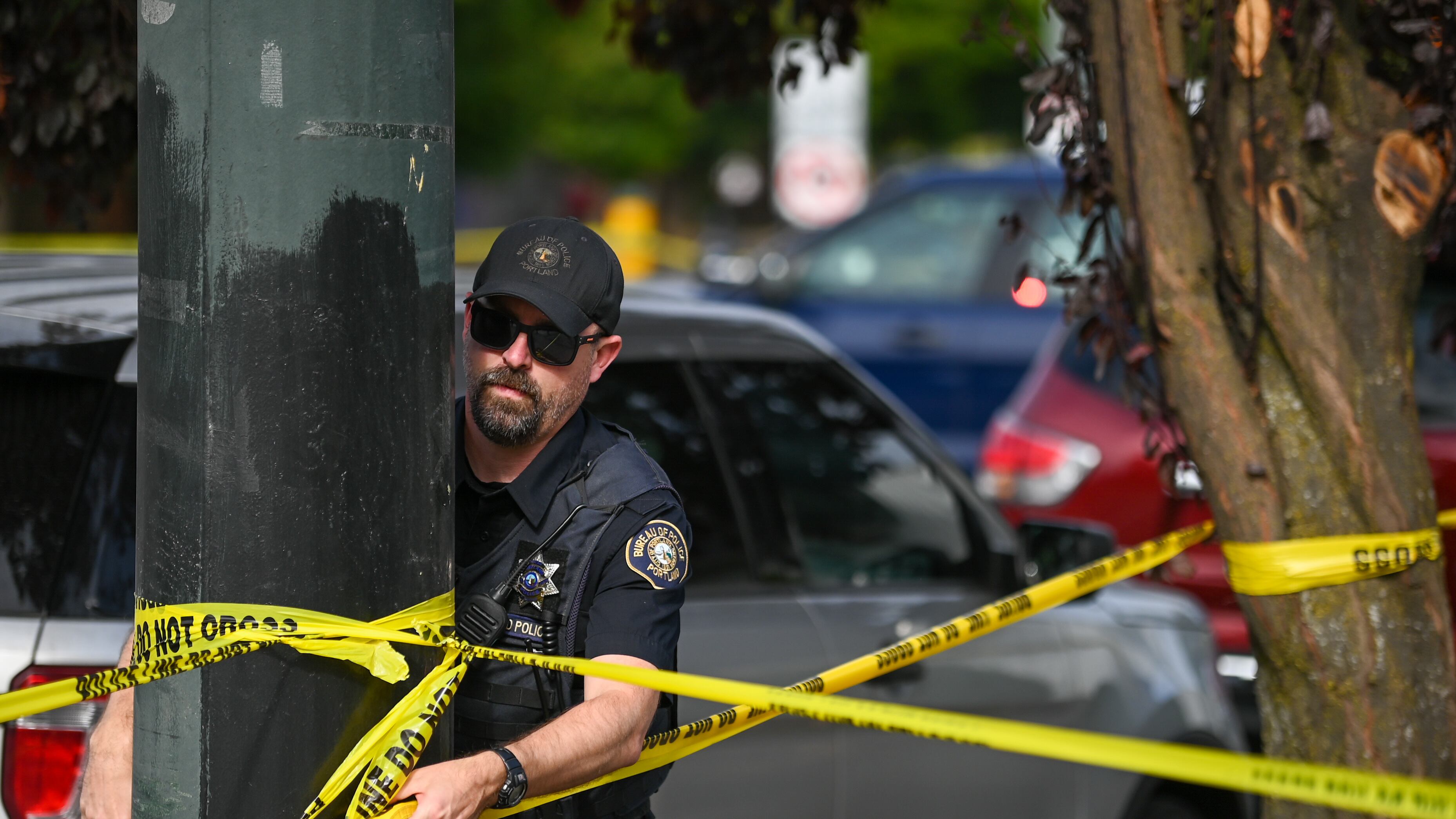In response to a record high of 62 fatal shootings in Portland this year, Mayor Ted Wheeler held a press conference on Friday to share the city’s latest plan for curbing gun violence and homicides.
The central thrust of his plan: increasing law enforcement capacity to respond to violent crime, both by hiring more police officers and redistributing some of their work.
Wheeler said he would request funding to rehire recently retired police officers during the fall budget update. (Some 80 officers are eligible.)
And he plans to reroute a portion of non-emergency calls to a hotline—called 3-1-1—which is currently housed in the Office of Management and Finance but has little capacity to field a substantial number of calls.
“We must recognize the prevention efforts require time and investment to disrupt the cycle of violence,” Wheeler said. “So, too, the city must respond to the emergency calls we receive now.”
Wheeler also signaled his support for expanding Portland Street Response, which he and Commissioners Mingus Mapps and Dan Ryan voted against in May, effectively striking down a citywide expansion at that time.
Today, the mayor says he is working with Commissioner Jo Ann Hardesty, whose office oversees Portland Street Response, “on the next iteration of that.”
“We will have a proposal to bring to council as soon as the fall BMP,” Wheeler said Friday. “My belief is that if Hardesty and I can reach agreement on that deployment, we shouldn’t have a hard time seeking support from the rest of council.”
During today’s press conference, Wheeler also spoke of his intent to beef up staffing by November for the Portland Police Bureau’s dedicated gun violence prevention unit, the Focused Intervention Team, which has struggled to recruit officers. That unit is separate from the Enhanced Community Safety Team, a 24-hour on-call gun violence response unit that Wheeler announced in February. In April, the City Council approved nearly $6 million for the ECST.
Wheeler today said he feels “highly accountable” for community safety in Portland, although he fell back on a common refrain: that Portland law enforcement is underresourced and overworked. When asked if he felt the city had failed to manage violence, Wheeler disagreed and said it’s not time to “sit around and lick our wounds.”
“What we’re in is a new environment where we have multiple public safety crises at the same time. We have a Police Bureau that is overtaxed in terms of personnel,” the mayor said. “We’re moving forward on strategies to give police the appropriate personnel, tools and resources to be able to do their jobs effectively in this environment.”

